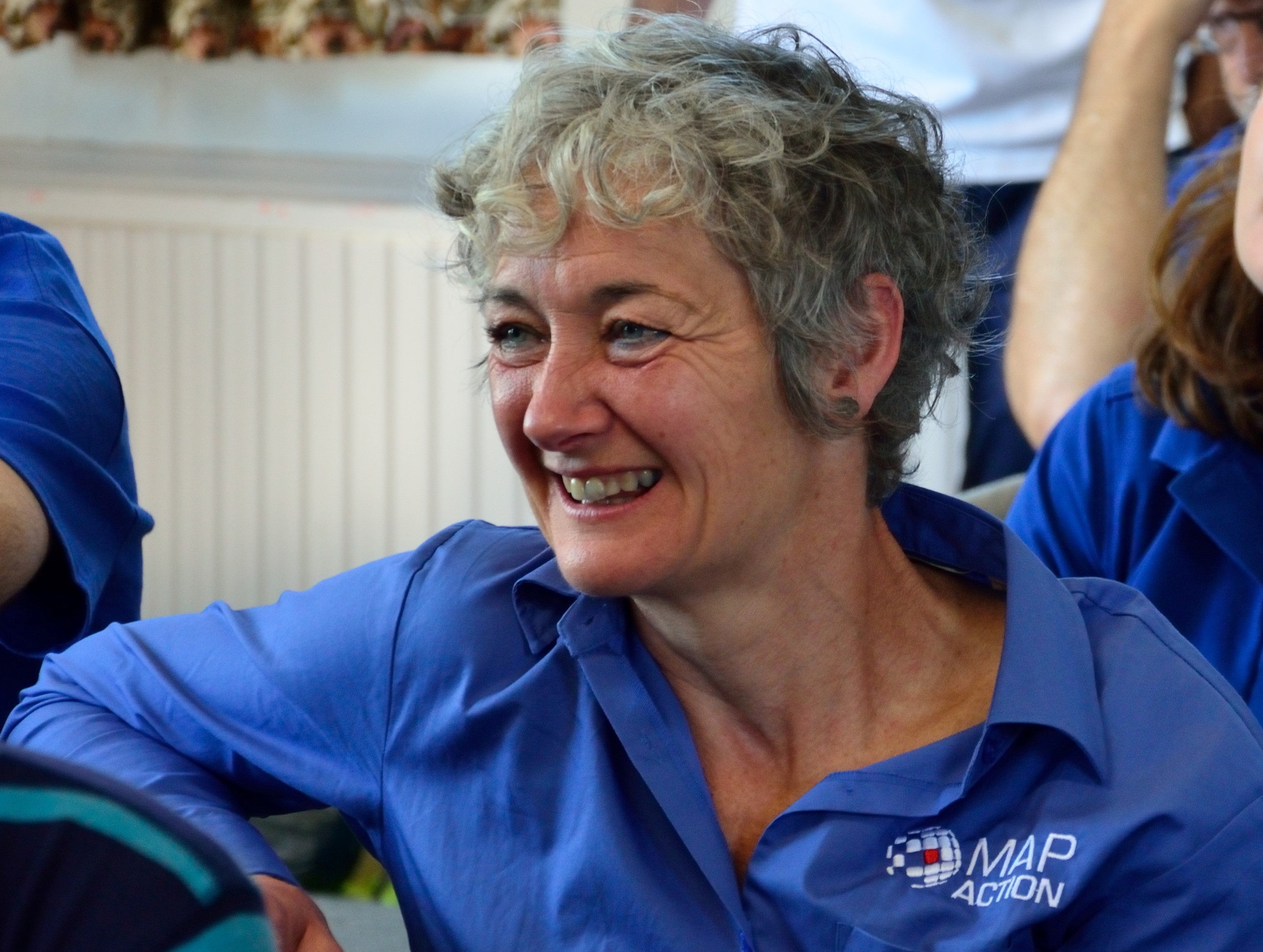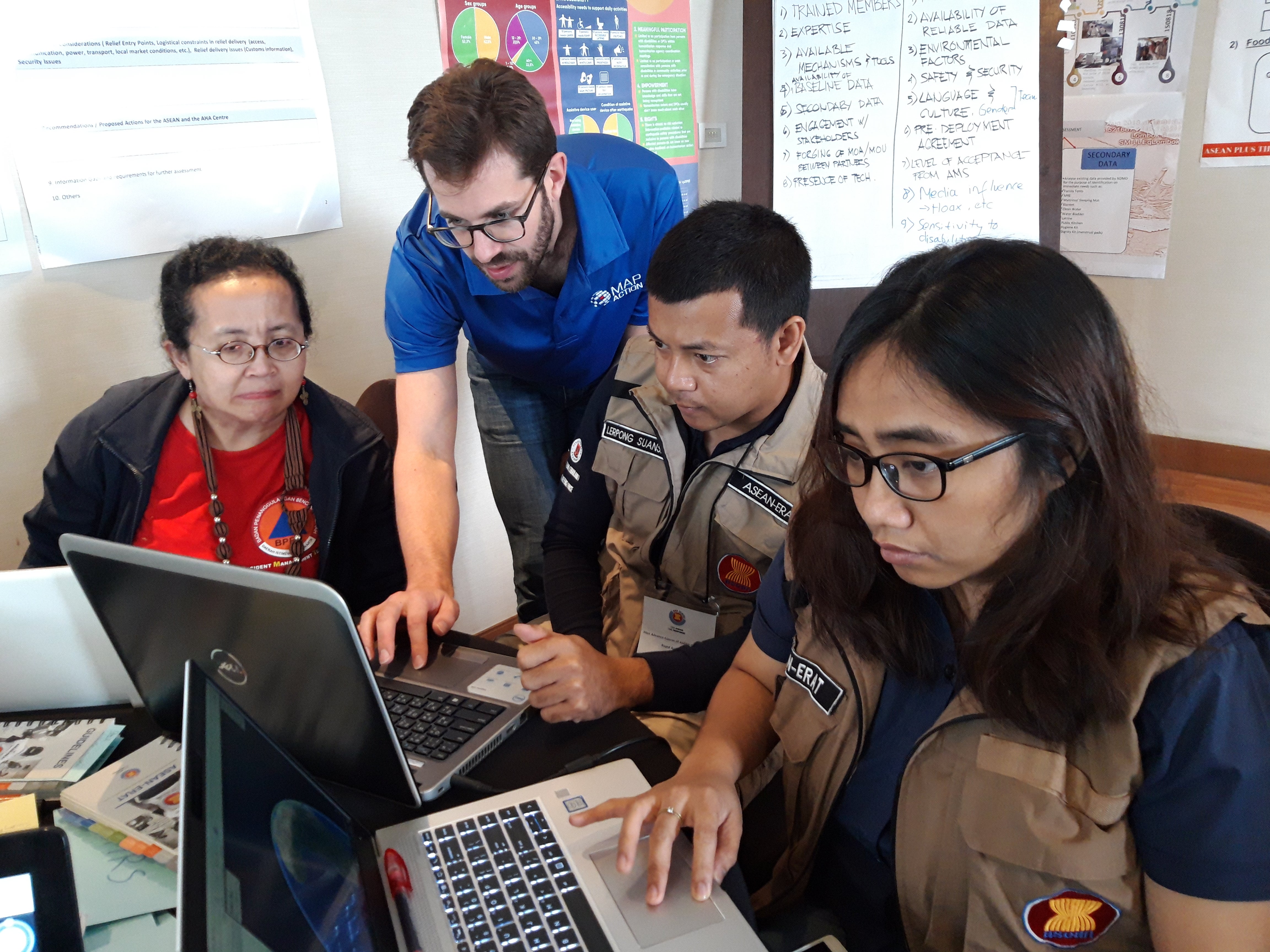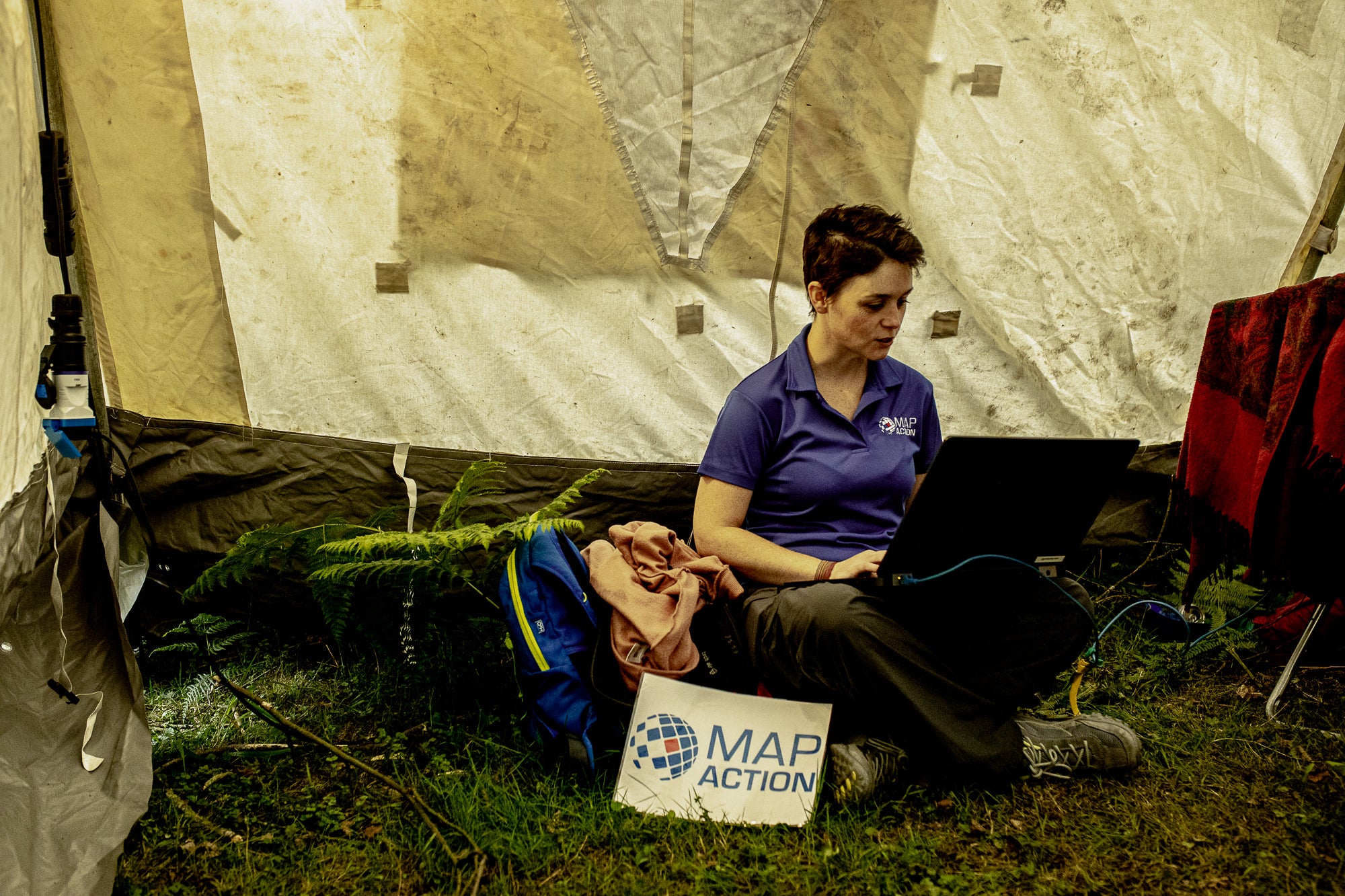How Liz Hughes is supporting humanitarian emergencies with maps
MapAction chief executive, Liz Hughes, spoke to Zlata Rodionova about how providing maps and data during humanitarian crises is saving lives across the world


For Liz Hughes, the news that she had been awarded the Order of the British Empire (OBE) for services to Humanitarian Crisis operations this January, came in as a shock. “I’m flabbergasted. Especially to receive this year, considering there have been so many people that have done so much, I couldn’t be more astonished.”
Yet her work as the chief executive of MapAction, an organisation which helps to provide maps and data for international bodies, national authorities and governments during humanitarian emergencies, couldn’t have been more important when the coronavirus pandemic took over the world.
In 2020, the organisation carried out 32 crisis response missions and eight disaster preparedness missions, of which 22 related to Covid-19. This compares to just eight emergency responses and seven preparedness missions the year before.
So why does mapping matter?
Aid agencies may know little about the region in which they’ve been deployed and for some regions annotated maps simply don’t exist.
For Ms Hughes, mapping is what helps to target where aid is needed and where the most vulnerable people are. “The relevance of geospatial analysis – understanding the geography of a pandemic – is pretty fundamental, that’s what track and trace is, to some extent, all about. It allows you to understand where the most critical need is.
“We had the experience of working in West Africa during the 2014-2015 Ebola outbreak, so we knew there was value in it. For us, it was not about whether we needed to do more this year, but about how to do it.”
She admits that supporting the humanitarian community’s response to the Covid-19 pandemic was one of the most challenging moments of her career. “With hindsight and a successful year behind us – or one when we think we made the most difference – we can breathe easy. But certainly, there was that moment of the ‘unknown’ and I knew it was my job to get through this unknown,” she said.
The way the pandemic spread across the world meant that some of MapAction’s partners were more affected than others. Meanwhile, travel constraints, especially during the first part of last year, meant that the organisation couldn’t send help on the ground.

Ms Hughes said: “What we did early on is to look at our constraints: what can we reasonable continue to do, what we are not going to be able to do and how we are going to do anything differently. What became apparent was that some plans – like working remotely – were already part of our long-term strategy. What Covid did was accelerate our intended work.”
As an organisation with more than 70 volunteers, MapAction already had tools in place for the team to work remotely and share data safely.
Meanwhile, the fact that people around the world were suddenly connected and working online, meant that Ms Hughes and her colleagues were able to participate in meetings across the globe including those they usually couldn’t get to because of the costs and the carbon footprint of the journey.
MapAction also set up an online health centre, which gave a place for their partners to lodge their requests. Ms Hughes said: “Essentially by the end of the year we had delivered triple our output and I’ve got to say there was a huge amount coming from our volunteers. They do their day job, have a cup of tea and then sat down at their computer in the evening to work for us. What they delivered is pretty amazing.”
Ms Hughes, who describes herself as a team person, said that her desire to work with volunteers is what attracted her to work for MapAction back in 2013.
She studied Anthropology and Archaeology at Durham University, before graduating with a Masters degree in Social Work from the University of Leicester and has been fascinated by geography from an early age.
“My father was a foreign news journalist and as a young adult I was desperate to go out and see the world,” she said.
It’s really about recognising the fact that there is much less need for people to go out and provide a service. Instead, we can work with colleagues in other countries
After her studies she went from teaching English in Sudan to running an art gallery back in England before turning to social work. “I see a trend in my career and it’s all about people – anthropology and sociology is all about studying how people live. That for me is the connector and what led me to what I do today.”
She was looking for a job within a company with a team-working spirit when she saw the advert for the leading job at MapAction and jumped on the opportunity. “I was looking for an organisation that had that ethos and I wanted to work with volunteers. That was the thing that caught my eye, it was this very niche organisation that was all about volunteering.”
Under her leadership, the team grew from just seven to 23 members of staff and 74 volunteers. MapAction also has more partners now than ever before including organisations such as the United Nations, Save the Children, the World Food Programme and Translators without Borders as well as several regional disaster management agencies among many others.
According to Ms Hughes, her team played a big part in the organisation’s success and growth: “In the role of leadership, I’m aware that whatever success occurs, I’m a contributor. Everyone participates and it’s all about the collective.”

While MapAction still does a lot of response work, it now focuses an equal amount of time on anticipation projects – preparing for a disaster or a conflict and helping national authorities to get ready for it.
Ms Hughes said: “It’s really about recognising the fact that there is much less need for people to go out and provide a service. Instead, we can work with colleagues in other countries to establish things on the right footing before that emergency occurs because they are perfectly able to deal with it, generally, if it’s not too big.”
“I think the humanitarian world has changed a bit and it needs to recognise that it isn’t the north getting to the south in quite the way it used to be. At MapAction, we think it’s much more about how we collectively solve problems.”
The organisation is now getting ready for another challenging year but Ms Hughes is keen to stress that other emergencies haven’t gotten away because of Covid.
“Last year, we began working with Oxfam in Eastern Southern Africa looking at the locust outbreaks which were causing a massive food security problem, none of these were visible to anybody because it wasn’t Covid related.”
MapAction also gathered data and produced maps situational for first responders and humanitarian teams in Beirut following the devastating explosion that ripped through the city in August last year.
Currently in lockdown in the UK, Ms Hughes says her daily runs and the thought that “we will come out of this eventually” keeps her sane and gives her hope, while her job continues to get her through the day: “What it boils down to for me is, whenever somebody says ‘that helped me’, whether it’s a refugee or a UN worker that gives me a big sense of achievement. If I think, ‘OK we’re getting that right, we made a difference to that person’, it makes me feel proud.”
Join our commenting forum
Join thought-provoking conversations, follow other Independent readers and see their replies
Comments
Bookmark popover
Removed from bookmarks